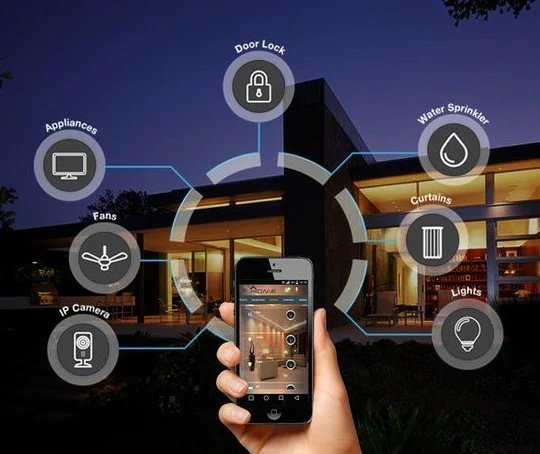.Introduction
In the age of rapid technological advancement, the concept of the “smart home” has transitioned from science fiction to everyday reality. Smart systems, once considered luxury amenities. are now becoming increasingly common in homes worldwide. These systems offer convenience, efficiency, and enhanced security, transforming the way we interact with our living spaces. Let’s delve into the world of smart systems and explore the myriad ways they are revolutionizing modern home living.
1. Smart Lighting is the Most Important factor in Smart Systems
Gone are the days of manually flipping switches to control the lights in your home.
With smart lighting systems, homeowners can effortlessly adjust the brightness, color, and ambiance of any room. with a simple voice command or tap of a smartphone screen.
These systems not only enhance convenience but also promote energy efficiency by allowing users.
to schedule lighting patterns and dim lights when not in use.
2. Home Automation in Smart Systems
Imagine a home where your thermostat adjusts itself to your preferred temperature, your coffee maker starts brewing as soon as you wake up, and your blinds open to greet the morning sun—all without lifting a finger.
Home automation systems make this vision a reality by seamlessly integrating various devices and appliances into a centralized control hub. Whether it’s controlling HVAC systems, security cameras, or entertainment systems, home automation puts the power of customization and control at your fingertips.
3. Intelligent Security
Keeping your home safe and secure is a top priority for any homeowner.
Smart security systems offer advanced features such as motion sensors, doorbell cameras, and remote monitoring capabilities.
allowing you to keep an eye on your home from anywhere in the world.
These systems provide peace of mind by sending instant alerts to your smartphone in the event of suspicious activity or unauthorized entry, empowering you to take swift action to protect your property and loved ones.
4. Energy Management
In an era of growing environmental awareness, energy management has become a key focus for many homeowners. Smart energy systems leverage real-time data and analytics to optimize energy usage, reduce waste, and lower utility bills. From smart thermostats that learn your heating and cooling preferences to energy monitoring devices.
that track your electricity consumption, these systems empower homeowners to make informed decisions about their energy usage and reduce their environmental footprint.
5. Voice Assistants
Voice-controlled assistants, such as Amazon’s Alexa and Google Assistant, have become integral parts of many smart home ecosystems. These virtual assistants respond to voice commands to perform a wide range of tasks, from playing music and answering questions to controlling smart devices and setting reminders.
By harnessing the power of natural language processing and artificial intelligence, voice assistants make interacting with smart systems more intuitive and user-friendly than ever before.
Conclusion About Smart Systems
In conclusion, smart systems are transforming the way we live, work, and interact with our homes. From intelligent lighting and home automation to advanced security and energy management solutions, the possibilities for innovation are endless. As technology continues to evolve, so too will the capabilities of smart systems, ushering in a new era of connectivity, convenience, and efficiency for homeowners around the globe.
Whether you’re looking to streamline your daily routines, enhance your home security.
or reduce your environmental impact, there’s a smart system out there to meet your needs and exceed your expectations. Welcome to the future of home living—where the possibilities are limitless, and the smart home of your dreams is just a tap or voice command away.



